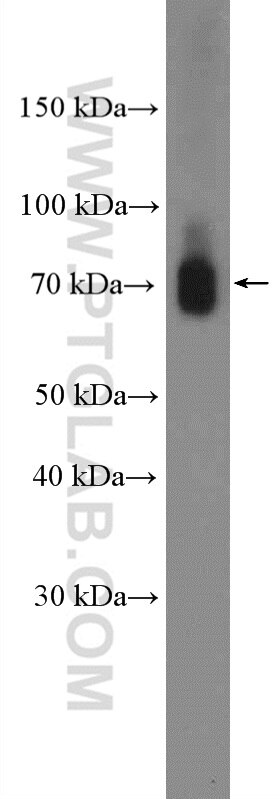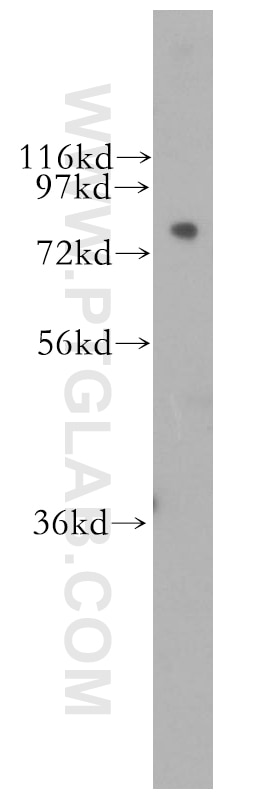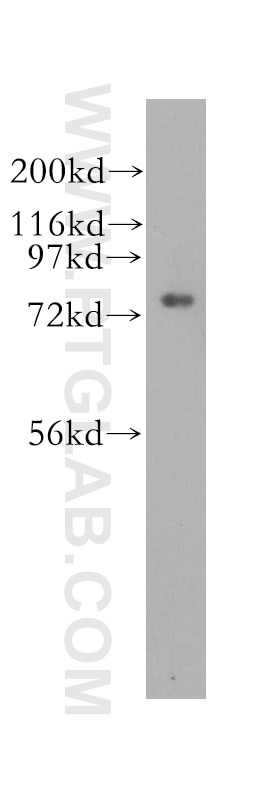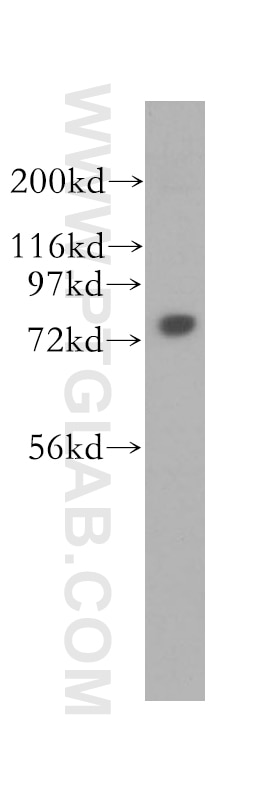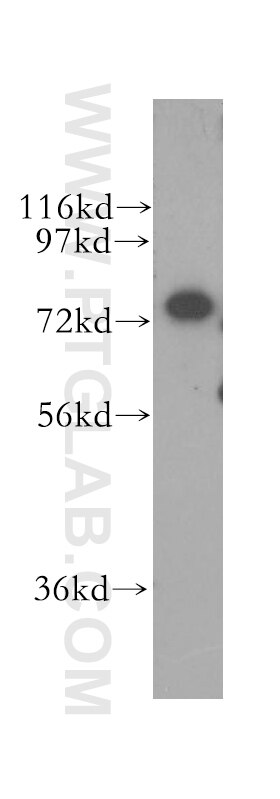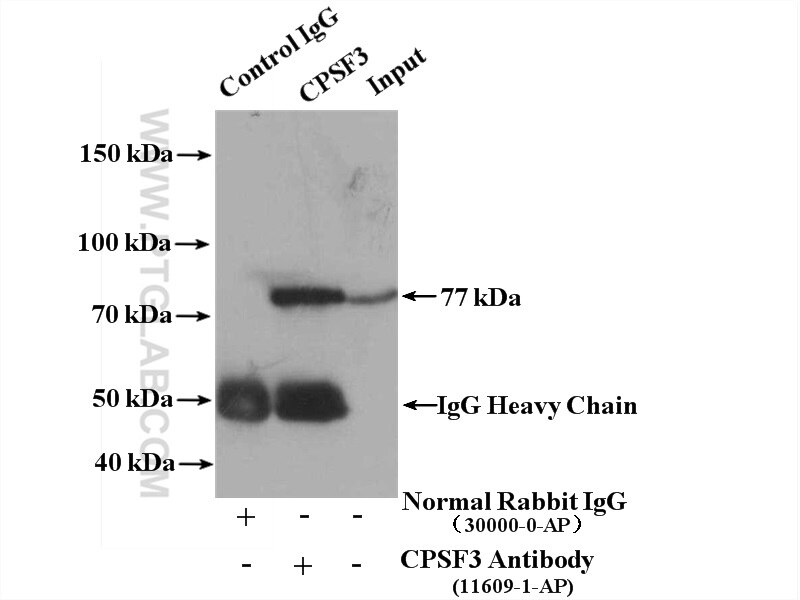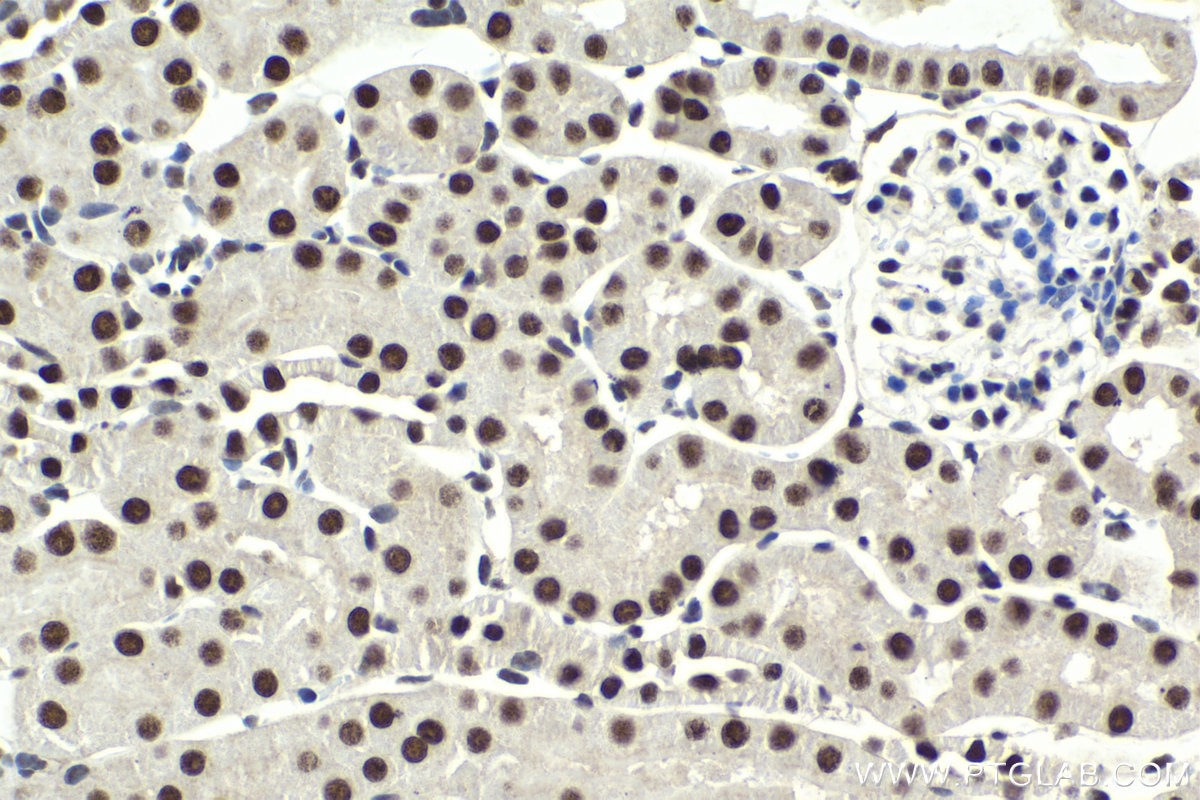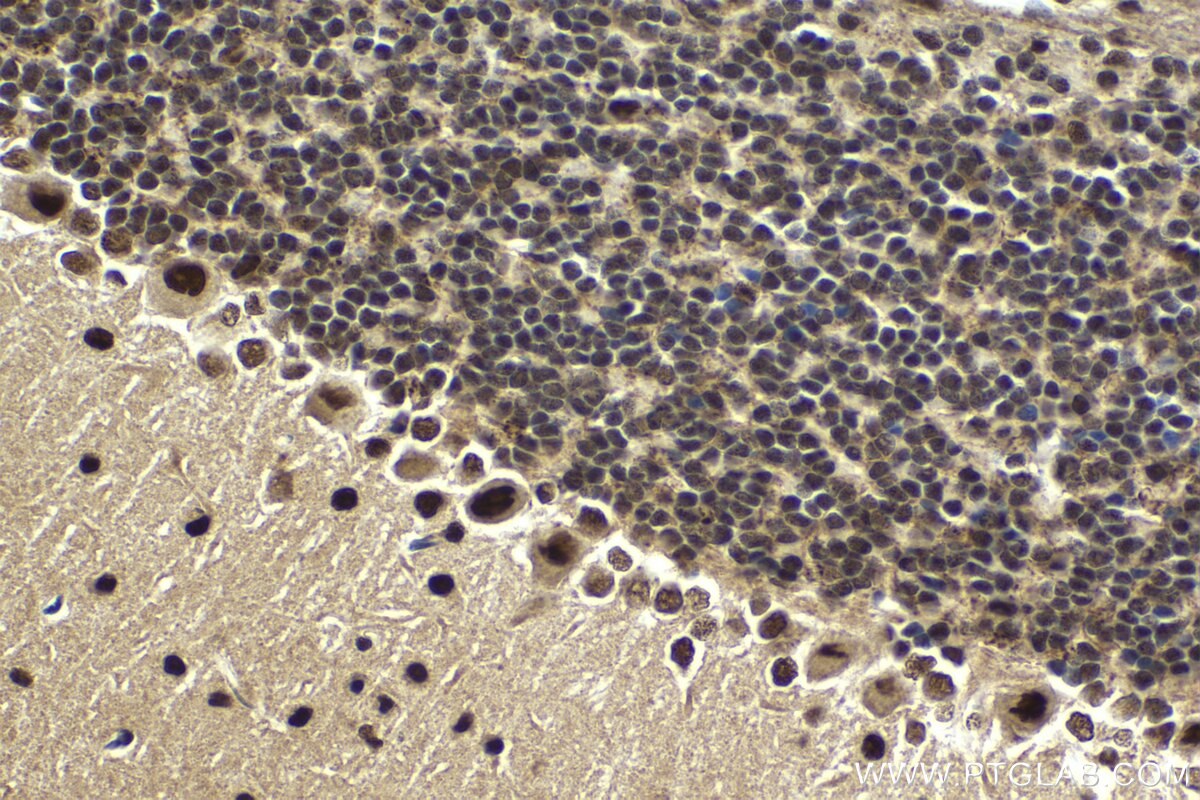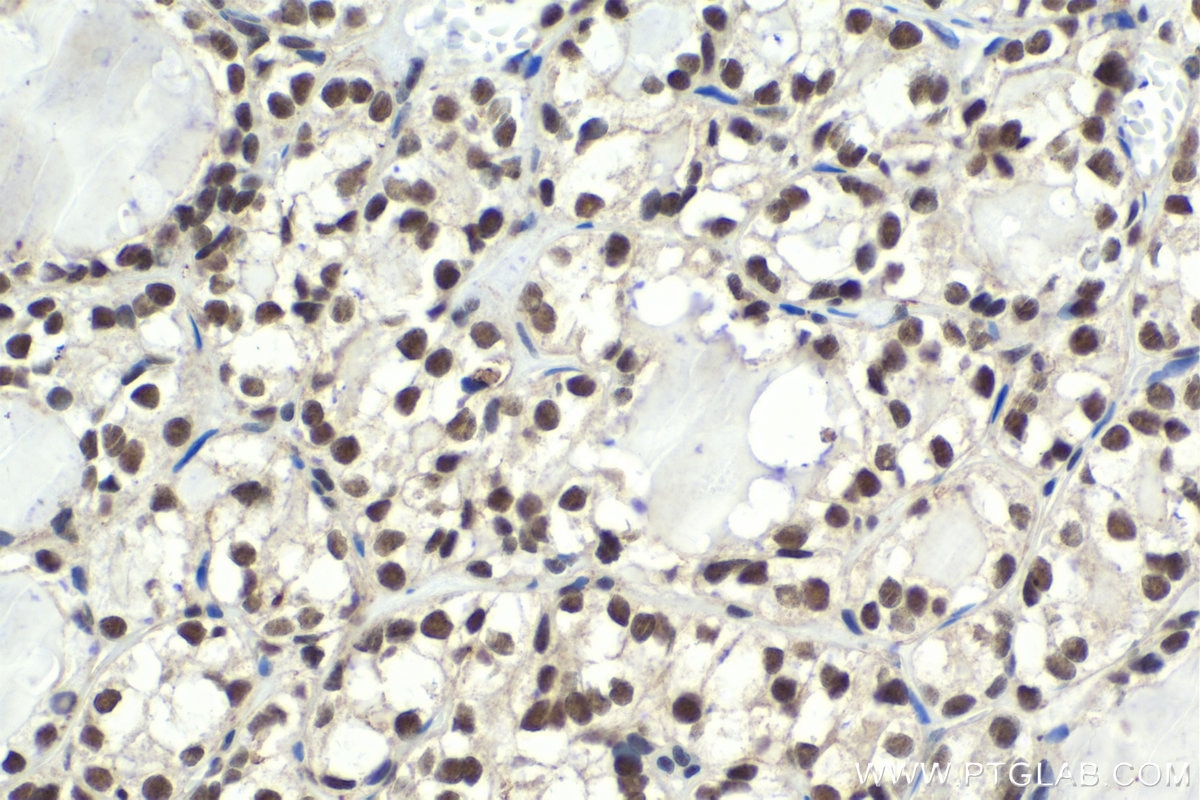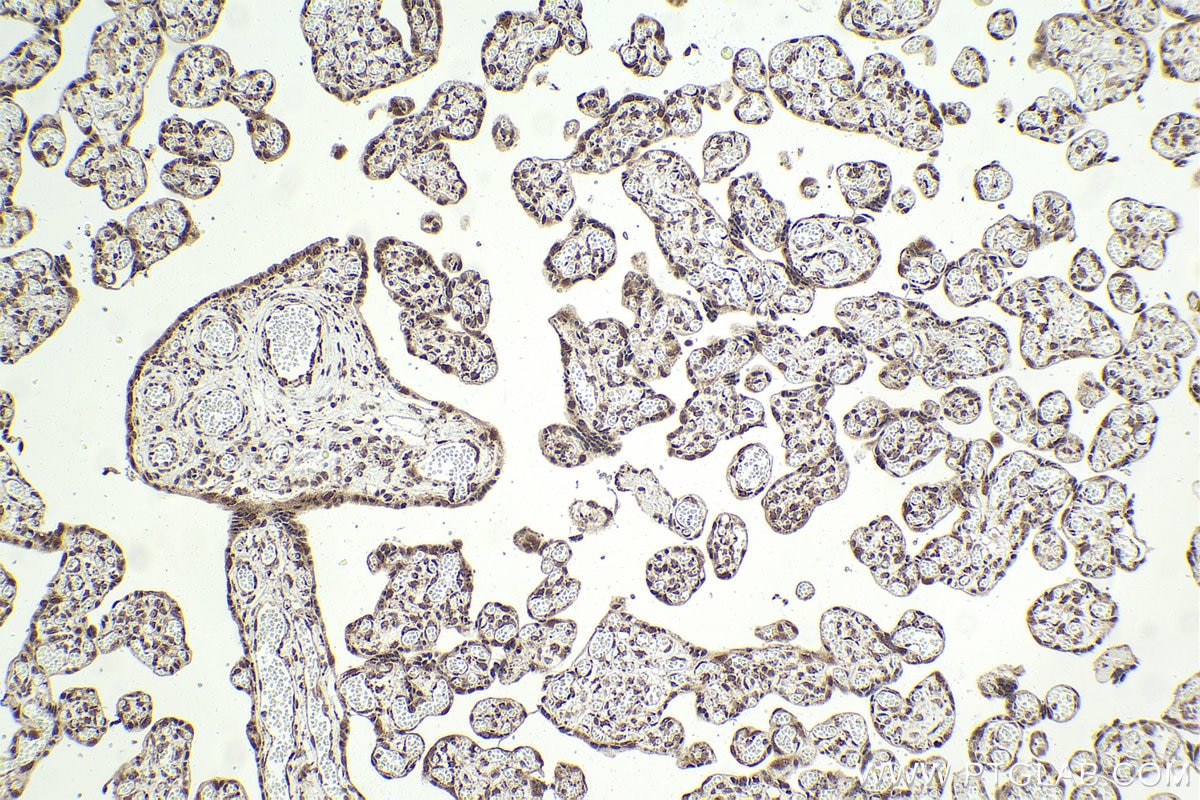- Phare
- Validé par KD/KO
Anticorps Polyclonal de lapin anti-CPSF3
CPSF3 Polyclonal Antibody for WB, IHC, IP, ELISA
Hôte / Isotype
Lapin / IgG
Réactivité testée
Humain et plus (1)
Applications
WB, IHC, IP, ELISA
Conjugaison
Non conjugué
N° de cat : 11609-1-AP
Synonymes
Galerie de données de validation
Applications testées
| Résultats positifs en WB | cellules HEK-293, cellules HepG2, tissu cérébral humain, tissu cutané humain |
| Résultats positifs en IP | cellules HEK-293, |
| Résultats positifs en IHC | tissu rénal de souris, tissu de cancer de la thyroïde humain, tissu de cervelet de souris, tissu placentaire humain il est suggéré de démasquer l'antigène avec un tampon de TE buffer pH 9.0; (*) À défaut, 'le démasquage de l'antigène peut être 'effectué avec un tampon citrate pH 6,0. |
Dilution recommandée
| Application | Dilution |
|---|---|
| Western Blot (WB) | WB : 1:500-1:2000 |
| Immunoprécipitation (IP) | IP : 0.5-4.0 ug for 1.0-3.0 mg of total protein lysate |
| Immunohistochimie (IHC) | IHC : 1:500-1:2000 |
| It is recommended that this reagent should be titrated in each testing system to obtain optimal results. | |
| Sample-dependent, check data in validation data gallery | |
Applications publiées
| KD/KO | See 2 publications below |
| WB | See 6 publications below |
Informations sur le produit
11609-1-AP cible CPSF3 dans les applications de WB, IHC, IP, ELISA et montre une réactivité avec des échantillons Humain
| Réactivité | Humain |
| Réactivité citée | Humain, porc |
| Hôte / Isotype | Lapin / IgG |
| Clonalité | Polyclonal |
| Type | Anticorps |
| Immunogène | CPSF3 Protéine recombinante Ag2173 |
| Nom complet | cleavage and polyadenylation specific factor 3, 73kDa |
| Masse moléculaire calculée | 684 aa, 77 kDa |
| Poids moléculaire observé | 77 kDa |
| Numéro d’acquisition GenBank | BC020211 |
| Symbole du gène | CPSF3 |
| Identification du gène (NCBI) | 51692 |
| Conjugaison | Non conjugué |
| Forme | Liquide |
| Méthode de purification | Purification par affinité contre l'antigène |
| Tampon de stockage | PBS avec azoture de sodium à 0,02 % et glycérol à 50 % pH 7,3 |
| Conditions de stockage | Stocker à -20°C. Stable pendant un an après l'expédition. L'aliquotage n'est pas nécessaire pour le stockage à -20oC Les 20ul contiennent 0,1% de BSA. |
Informations générales
CPSF3 (cleavage and polyadenylation specificity factor 3) is involved in human disease and is the putative target of benzoxaboroles in trypanosomatid parasites and Cryptosporidium infection. CPSF3 has also been associated with cancer malignancy in that CPSF3 induces cell cycle arrest in hepatocellular carcinoma and promotes lung adenocarcinoma cell proliferation and metastasis (PMID: 38718887). CPSF3 has been implicated in various cancers, including lung cancer, colorectal, prostate, and triple-negative breast cancers (PMID: 37627085).
Protocole
| Product Specific Protocols | |
|---|---|
| WB protocol for CPSF3 antibody 11609-1-AP | Download protocol |
| IHC protocol for CPSF3 antibody 11609-1-AP | Download protocol |
| IP protocol for CPSF3 antibody 11609-1-AP | Download protocol |
| Standard Protocols | |
|---|---|
| Click here to view our Standard Protocols |
Publications
| Species | Application | Title |
|---|---|---|
J Exp Clin Cancer Res LncRNA CASC9 interacts with CPSF3 to regulate TGF-β signaling in colorectal cancer.
| ||
Cancers (Basel) CPSF3 Promotes Pre-mRNA Splicing and Prevents CircRNA Cyclization in Hepatocellular Carcinoma | ||
Cell Rep Proteomics reveal cap-dependent translation inhibitors remodel the translation machinery and translatome. | ||
Cell Mol Life Sci Single-cell multi-omics profiling reveals key regulatory mechanisms that poise germinal vesicle oocytes for maturation in pigs | ||
Cell Chem Biol Anticancer benzoxaboroles block pre-mRNA processing by directly inhibiting CPSF3 | ||
Cell Discov RBBP6 maintains glioblastoma stem cells through CPSF3-dependent alternative polyadenylation
|
Avis
The reviews below have been submitted by verified Proteintech customers who received an incentive forproviding their feedback.
FH Fabienne (Verified Customer) (06-12-2024) | Works perfectly
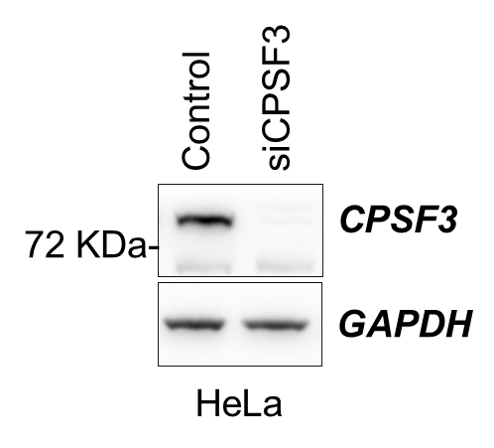 |
